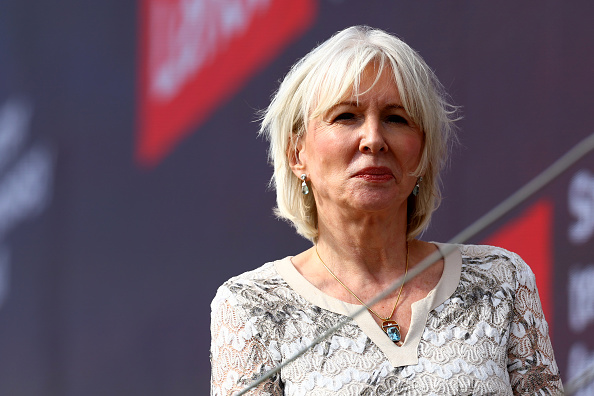Letter to Dorries: Campaigners warn Online Safety Bill amendment risks becoming ‘disinformation laundromat’

Dozens of campaigners and academics have written to the Culture Secretary Nadine Dorries to warn that the Online Safety Bill could make the UK the world’s first “disinformation laundromat”, where malicious actors receive legal protections to spread hate and lies.
It comes after the government published a last-minute amendment to the bill last week designed to protect press freedom, which effectively bans social media platforms from removing harmful content from media outlets, including state-influenced channels like Russia Today, or extremist websites, while they appeal.
The bill promises ‘recognised news publishers’ exemptions from online safety regulations, but in effect means that almost anyone setting up their own blog site or working for an outlet controlled by a malicious foreign government could avoid scrutiny.
Civil society groups have warned that if passed, bad actors will flock to the UK as the only place in the world where platforms are legally prevented from removing false and malicious posts by so-called ‘recognised news publishers’.
The fifty-seven signatories, including the likes of Demos and Hacked Off, argue that the new clause – published on 7 July – makes the current situation worse – legally requiring platforms to keep these organisations’ harmful content up until the publisher has had the chance to go through an appeal process.
Director of Fair Vote UK and organiser of the letter Kyle Taylor called the latest amendment an “absolute shambles”.
“Rather than making the internet safer or protecting media freedom, it would enable Putin’s cronies, conspiracy theorists and other extremists to spread harmful lies and disinformation. Boris Johnson promised no new policies whilst the Conservatives elect a new leader – pushing this amendment through parliament would be a clear breach of his word”, he said.
Co-founder of Global Project Against Hate and Extremism Dr. Heidi Beirich said: “The government must remove the harmful carve outs that threaten to render this Bill unworkable, and worse than not having new regulation at all. The media and speech of democratic importance exemptions are poorly drafted, open to abuse and should be removed entirely. Furthermore, paid adverts must be brought fully in scope.”
Social media platforms have also called for the media exemption to be scrapped.
Twitter said in its submission to the Online Safety Public Bill Committee: “Exemptions around journalistic content, news publisher content, and content of democratic importance should be removed. We have concerns as to whether the definitions at present are workable in practice; and risk creating loopholes that bad faith actors could exploit to share harmful content online.”
While MPs are due to vote on the amendment tomorrow, the contest for the next Tory leader may completely throw the Online Safety Bill off course.
Contender for the top spot Kemi Badenoch MP said this afternoon that she would scrap the bill if she becomes prime minister due to concerns about freedom of speech.
A spokesperson for the Department for Digital, Culture, Media and Sport told City A.M.: “These claims are completely inaccurate. We have strengthened our world-leading Bill with a new duty for online platforms to protect people from state-sponsored disinformation.
“The amendment will stop social media platforms taking down content from recognised news publishers while it is under review. It does not apply to illegal content, and ultimately companies can still remove content if it breaches their terms of service.”
“Neither sanctioned news outlets such as RT or people falsely claiming to be journalists will benefit from the news publisher exemption, which only applies to organisations meeting robust criteria set out in the Bill.”
The government has acted to stop the spread of RT and Sputnik’s disinformation about Russia’s invasion of the Ukraine in the UK and sanctioned news outlets will not benefit from these protections.
Ministers intend to amend the criteria for determining which organisations qualify as recognised news publishers to explicitly exclude organisations that are subject to sanctions.